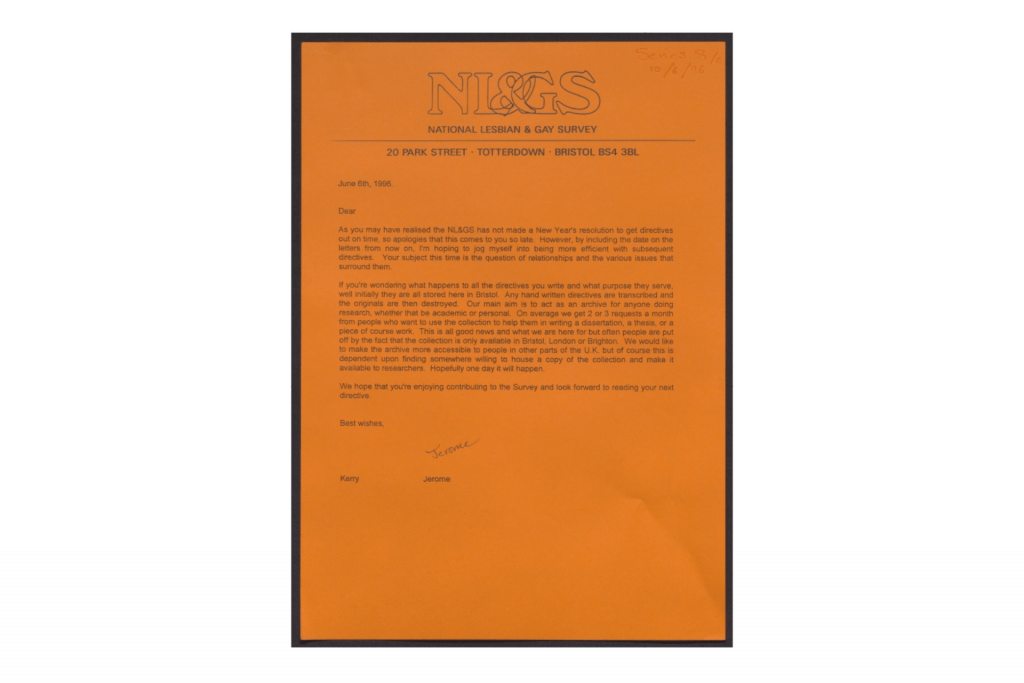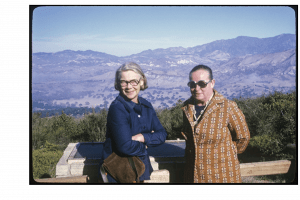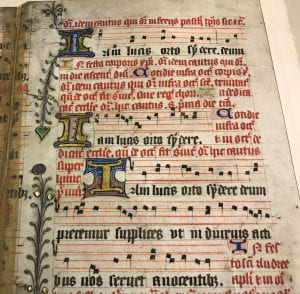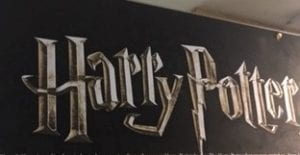Its near the end of LGBTQ+ History month so we are focussing on LGBTQ+ mental health and wellbeing research in connection with the COVID-19 pandemic.
Continue reading “LGBTQ+ health and wellbeing during the COVID-19 pandemic”
University of Lincoln Libraries and Learning Skills Blog
Its near the end of LGBTQ+ History month so we are focussing on LGBTQ+ mental health and wellbeing research in connection with the COVID-19 pandemic.
Continue reading “LGBTQ+ health and wellbeing during the COVID-19 pandemic”
February is LGTBQ+ history month in the UK and library blog is celebrating by featuring posts about resources for exploring LGTBQ+ lives in the past, present, and future. This first post in our series is about one of our online archives. We would love to hear your comments and questions about the posts: please tweet us @GCWLibrary, email us at library@lincoln.ac.uk, or tell us your thoughts in the comments section at the end of the post.
Adam Matthews Explorer (AM Explorer), is one of the library’s newer databases, and contains a huge range of online archives organised around a wide range of themes. Queer histories A collection that might be of particular interest for exploring LGTBQ+ histories in the nineteenth, twentieth, and twenty-first centuries centuries is Sex and Sexuality. The archive collects the research papers, notes, and interviews of people who have researched sex, sexual behaviour, sexuality from an academic and medical perspective, such as Alfred Kinsey and Norman Haire; and archival collections which focus on lived experiences of individual people.

You can do a keyword search within the archives represented in the collection (the take a tour page gives you a good overview of the collection as a whole) or browse specific parts of it. One particular part of the collection lets you explore the diaries of Anne Lister, a nineteenth century gentlewoman who wrote about her relationships with women and travels across Europe. An introductory essay offers some context and background on who Anne Lister was and her importance in lesbian history. You can also explore the papers of the nineteenth and early twentieth century gay rights advocate Edward Carpenter. To explore twentieth century gay and lesbian history, you can explore the responses given by participants in the National Gay and Lesbian Survey.

The Sex and Sexuality archive also focuses on a wide range of collections from specific libraries, such as the Kinsey Institute, which has collected a large library and archive of material relating to sex and sexuality–you can explore collections ranging from romantic and erotic pulp fiction to an archive of materials on cross-dressing in the nineteenth century and much more besides. You can also explore collections from the ONE Archive at the University of Southern California Libraries, including papers, photographs and letters which provide a firsthand view of queer lives, relationships and advocacy in twentieth century America. On the other side of the pond, archivists have collected a huge range of material from the UK’s National Archives relating to sex and sexuality–you can see some of the highlights here

Even if you have some experience researching for your studies, working with an online archive can sometimes be overwhelming! There are a range of ways to explore the collection in order to find material you are looking for or interested in. You can search for specific names or keywords–if you are searching for particular words and phrases keep in mind that our vocabulary around sex and sexuality has changed a lot (and continues to do so), so you might find it helpful to take a look at the research tools section for ideas. If you are interested in browsing specific topics, like gender identities or art and literature, there’s a feature that lets you browse by topic. And if you struggle to locate material that is relevant to your research or interests, do contact your subject librarian–we’re here to help!
Library staff are participating in History Day 2020, a set of interactive events which allow students, researchers, and lovers of history to explore archival, museum, and library collections that tell us more about the past. Our contribution takes the form of two blog posts–links and more details below!

In ‘Silencing the Music‘, Special Collections Librarian Claire Arrand and music librarian Hope Williard reflect on the delay coronavirus has caused for a joint research project with two undergraduate students, Valerie Arinda and Megan Lomas. Our project, ‘Distant Music: Uncovering the Music of Lincoln Cathedral Library’, will involve investigating Lincoln Cathedral’s incompletely catalogued manuscript and printed sacred music. Due to the pandemic, and the impossibility of conducting socially distanced or online research, the project has been put on hold, but we hope you enjoy reading about it, and getting a sneak peek at some of the cathedral’s musical treasures.
Continue reading “GCW Library Contributes to History Day 2020”
March is women’s history month and the library blog is celebrating by featuring posts from authors around the university about the lives and writings of women. The third post in our series is by Emily Hanson, administrator for the School of History and Heritage. Thank you for writing for us, Emily! We would love to hear your comments and questions about the posts: please tweet us @GCWLibrary, email us at library@lincoln.ac.uk, or tell us your thoughts in the comments section at the end of the post.
I recently found myself writing a defense of young adult literature on my blog. I have always argued for the importance of high quality, relevant teen literature (or YA–Young Adult), not just for teens but for all of ages. At first glance, literature written from a teenage perspective offers the potential for representation that young people may not find elsewhere in traditionally published writing, alongside facilitating empathy for the modern teen experience. Beyond this, however, I argue that YA is a fantastic vehicle for exploring some of life’s most challenging experiences through the lens of those in a life phase where these experiences are new and deeply felt. In the context of women’s history, YA writing provides an excellent opportunity to empathetically ‘clap back’ to misogynistic issues faced by the young women of 2020.
Continue reading “How young adult literature is clapping back to misogyny”
Librarians can give you many reasons why our resources are considered preferable to those you might find on the open web – such as the resource’s reliability, relevance and the review process, to name a few.
While, yes, we librarians love to extol the virtues of the Library and would prefer our students, staff and researchers make use of our wonderful (and not inexpensive) print and electronic resources, we are aware that many people find using Google for their research easier and, dare we say it, quicker!
March is women’s history month and the library blog is celebrating by featuring posts from authors around the university about the lives and writings of women. Our second post in our series is by Rebecca Norman, a third year student on the BA History course. She explains the topic of her dissertation and how it helps us understand the lives of lower and middle class British women. Thank you for writing for us, Rebecca! This post has been guest edited by School of History and Heritage administrator, Emily Hanson. We would love to hear your comments and questions about the posts: please tweet us @GCWLibrary, email us at library@lincoln.ac.uk, or tell us your thoughts in the comments section at the end of the post.
When my grandpa found out I was writing my undergraduate dissertation on Denise Robins’ popular romance fiction, he commented that:
‘You don’t need to be paying to read that rubbish at University, your grandma has plenty on her kindle!’
Somehow, in his initial pride that his granddaughter was studying a ‘proper’ subject like History at university, he had not envisioned me carrying out a research project on what is widely regarded as ‘trashy’ fiction; but I’m about to finish off 10,000 words on the gender identities constructed and communicated in popular romance novels of the 1930s.
March is women’s history month and the library blog is celebrating by featuring guest posts from authors around the university about the lives and writings of women. Our first post in our series is by Emma Fox, a third year student on the BA History course. She explains the topic of her dissertation and offers advice to students beginning to think about theirs. Thank you for writing for us, Emma! We would love to hear your comments and questions about the posts: please tweet us @GCWLibrary, email us at library@lincoln.ac.uk, or tell us your thoughts in the comments section at the end of the post.
For my dissertation, I have been writing about the Woman’s Exhibition held in 1900 at Earl’s Court. This was one of many commercial exhibitions held by London Exhibitions Ltd under Imre Kiralfy who was known in both Britain and the USA for his spectacles and shows. My dissertation explores the exhibition’s representations of women and if and how these appealed to the public.
A student told me yesterday that it is quicker to use Google rather than the Library. It felt like I had to do a full-on sales pitch for the next hour extolling the virtues of the Library resources. I felt I partially succeeded. The student listened and decided they would like to investigate further.
So why use the Library resources when Google is such a handy option?
What’s the big deal about the Library?
To do academic research, your tutors will expect you to go beyond Google to find good quality, scholarly material. Your search on Google does not go through a review process. Anyone can publish on the web. The Library resources are carefully reviewed and selected by Librarians based on their reliability, relevance to your studies and add value to your academic research.
Your Subject Librarian has organised Library sources into a Subject Guide to help you easily decide which databases and journals you need for your research. Internet sources are not organised and there are too many pages for any search engine, like Google, to organise by subject matter.
Use the Library to find print and e-resources specific to your subject area and find a wealth of material including academic articles, news items, technical information, magazines, images, statistical data and more. Many of the databases that the Library subscribes to are indexes to millions of articles from an array of different disciplines.
No one is saying don’t use Google. Use it for information on corporations and other organisations, for news and current awareness, for researching a well-known event or individual or to find opinions on a topic. Use Google ALONGSIDE the Library resources. They can complement each other.
What about Google Scholar?
Again, it can be a great source when used in conjunction with the Libraries’ article and other databases but not on its own. Yes, it has scholarly articles but it also includes other material that is untrustworthy and you may miss out on articles in full-text.
So….check out the Library Subject Guides and find out who your Subject Librarian is so that they can get you started on where and how to search effectively for your individual topic. It might well save you the time you thought you were saving on Google.
Look at your subject guide here: https://guides.library.lincoln.ac.uk/?b=s
Find out who your Subject Librarian is here: https://guides.library.lincoln.ac.uk/asl
J. K. Rowling starts the seventh and final volume ‘Deathly Hallows’ in the Harry Potter series with an introductory epigraph from the Greek poet and playwright Aeschylus (525/524 – 456/455 BCE) The Libation Bearers.
The Library staff have been hard at work creating a display dedicated to the Harry Potter books and items based on library-related quotes from the seven Harry Potter books. The Harry Potter phenomenon started on the 26th June 1997 when J.K. Rowling’s Philosopher’s Stone was published. The author was then know as Joanne Rowling and some first edition copies include this name. The films followed between 2001 and 2011.
